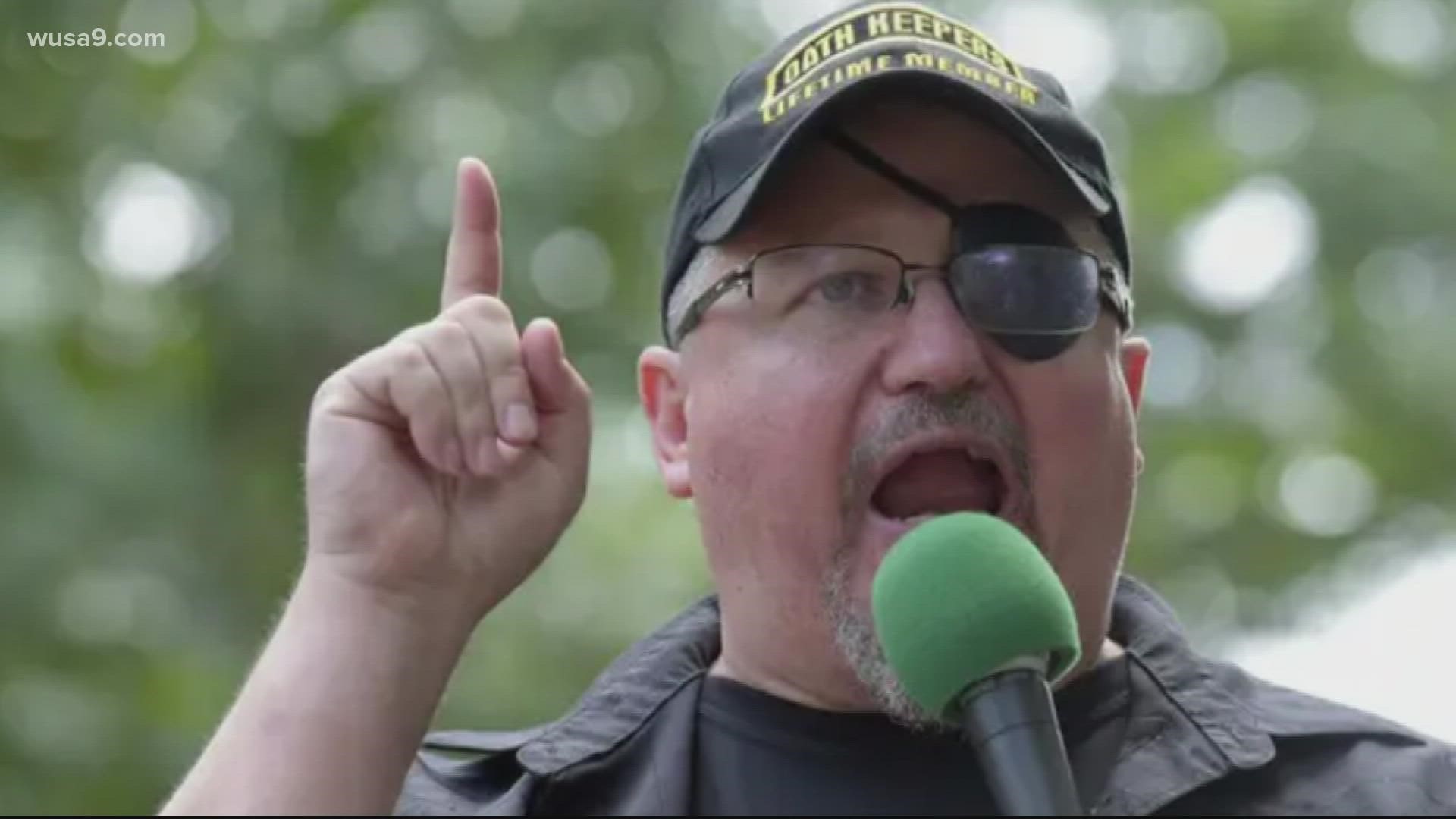WASHINGTON — A federal judge denied Oath Keepers founder Stewart Rhodes’ request to fire his legal team and delay his looming trial Wednesday, saying the 11th-hour motion was full of inaccurate and “bewildering” statements that had no apparent connection to the case.
Wednesday’s emergency hearing was prompted by a filing the day earlier by Louisiana-based attorney Ed Tarpley who, he claimed, was now representing Rhodes in his Jan. 6 seditious conspiracy case. Rhodes has been represented since his indictment in January by attorneys James Lee Bright and Phillip Linder, both based in Texas, where Rhodes also lived prior to his arrest.
The 20-page motion asked for Tarpley to replace Bright and Linder and for a 90-day delay in Rhodes’ jury trial, set to begin Sept. 27, to allow Tarpley to get up to speed and to file a slew of motions Rhodes claimed Bright and Linder had failed to.
U.S. District Judge Amit P. Mehta, who is presiding over the multi-defendant Oath Keepers cases, ordered an emergency hearing on the motion. On Wednesday, he denied both the request for Bright and Linder to be taken off the case and the request for a continuance – saying he wouldn’t let Tarpley or Rhodes inflict the “havoc” on the case or his docket the request would cause.
“Mr. Linder and Mr. Bright are going to be at that table representing Mr. Rhodes at trial in three weeks,” Judge Mehta said. “Period. Full stop. End of story.”
Judge Mehta noted he has repeatedly granted continuances requested by the defense to allow more time for trial preparation and that Rhodes in particular has been granted extraordinary dispensation to access discovery in his case. He called the suggestion that Linder and Bright haven’t provided Rhodes with competent counsel “complete and utter nonsense” and categorically rejected the idea that Rhodes was not getting a fair trial.
"I feel like there are a number of incorrect and frankly bewildering statements in the motion,” Judge Mehta said. “The very first allegation is that somehow Mr. Rhodes is not receiving a fair trial, and that is unequivocally false."
Judge Mehta noted he hadn’t heard “a peep” from Rhodes about dissatisfaction with his attorneys for nine months until Tuesday, just three weeks before trial. He then went claim-by-claim through Rhodes’ motion, rejecting arguments Tarpley presented in support of the trial delay.
Among the more noteworthy items in the motion were complaints that Rhodes’ attorneys had not sought discovery regarding Cassidy Hutchinson and Ray Epps. Hutchinson, a former White House aide to chief of staff Mark Meadows, testified before the January 6th Committee earlier this year and mentioned at one point overhearing former President Donald Trump mention the Oath Keepers. Mehta said Hutchinson had “no role in the case whatsoever,” something Rhodes’ attorneys agreed with.
Rhodes’ motion also argued it was “imperative” he receive discovery relating to Epps, a former Arizona Oath Keeper at the center of an unsupported conspiracy theory about agents provocateur igniting the riot. Bright told Mehta pointedly he had no intention of bringing up Epps at trial.
"I have no intention of even talking about Ray Epps in this case," Bright said. "I am aware of who he is in the world of conspiracies that surrounds this case. He's a red herring in this case and it's a wormhole as a defense attorney I'm not going to go down."
Bright also said he would “never even entertain” the idea of filing a motion alleging prosecutorial misconduct in the case – another of Rhodes’ complaints.
The one item in the motion Judge Mehta said he did find troubling, something also highlighted by Linder, was the indictment of Oath Keepers general counsel Kellye SoRelle on conspiracy and obstruction charges last week, along with a June indictment of Oath Keepers member and alleged Jan. 6 operations leader Michael Greene in June. During the hearing Wednesday, Linder suggested the government was intentionally trying to dissuade Greene and SoRelle, both expected to be important witnesses in Rhodes’ defense, from talking.
“Every time we put someone on the witness list, they get indicted,” Linder said.
Judge Mehta said he did find that troubling, but also noted he hadn’t seen “a speck of paper” filed about those concerns.
The judge’s decision leaves Rhodes in the September trial group, which also includes other Oath Keepers prosecutor’s described as among Rhodes’ “top lieutenants. It also leaves Linder and Bright in the potentially uncomfortable position of potentially having to coordinate with Tarpley, who repeatedly cast aspersions on them in his motion. Bright was incensed enough he referred to some of the claims in the motion as “outright lies” – although, in an effort to mend fences with Rhodes, he apologized for that during the hearing. But, he also stressed how much time he and Linder had put into the case on Rhodes’ behalf.
“I’ve given seven months of my life for Mr. Rhodes,” Bright said. “I’ve missed sporting events. I’ve missed time with my family for a man I don’t know. I’m prepared to come to D.C. for six weeks away from my children.”
For Judge Mehta’s part, he offered Rhodes and Tarpley only one concession.
“We’ll make room for you at the table, Mr. Tarpley,” he said. “But that’s about as much as I’m willing to do.”
The first stage of jury selection for the Oath Keepers’ trial was scheduled to begin next week with a jury questionnaire for an unusually large panel of 150 potential jurors. Opening arguments in the case were scheduled to begin Sept. 27.
We're tracking all of the arrests, charges and investigations into the January 6 assault on the Capitol. Sign up for our Capitol Breach Newsletter here so that you never miss an update.

